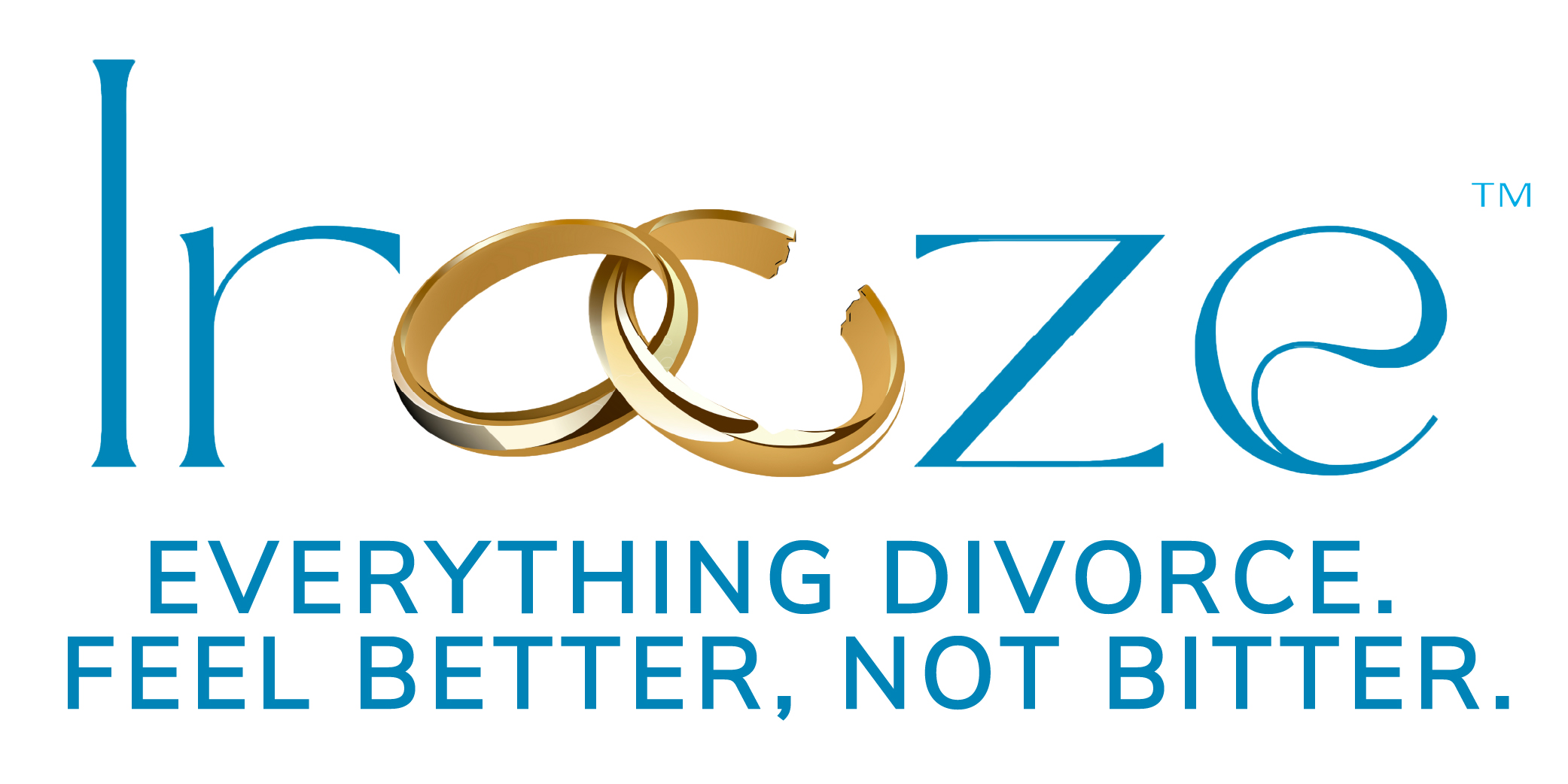The experience of divorce can be described as an emotional earthquake. It’s a life-changing event that levels everything you thought your life would be, taking down your foundations and forcing you to find new ground to stand on in a way you probably never imagined you would have to do. The emotions can be widely varied and feel quite overwhelming, and the first thing people typically experience is shock, a sudden feeling of emotional distress. This initial reaction will be the first in a string of emotional responses, ranging from guilt, anxiety, denial, and anger, to optimism and even relief.
Studies show that up to 86% of divorced individuals experience significant emotional distress during the separation period.
Whether you are the one who initiated the separation and requested the divorce, or have had to face the reality of your soon-to-be ex-spouse’s decision, the emotional upheaval can leave you feeling unbalanced, crushed and lost. Understanding the shock and the subsequent feelings that will surface is essential to your healing and cultivating resilience.
In this article, we’ll explore the initial wave of shock, the following spectrum of emotional phases, and ways to find acceptance and the ability to move forward.
The First Stage of Divorce: Understanding Emotional Shock

Whether you were expecting the divorce or not, shock is the initial feeling you will experience when the decision of a divorce becomes a reality. Shock is actually your mind’s way of protecting you from the impact of such a massive change to your life and the dissolution of everything you thought your life would be in the future. Divorce and separation are more than just “a lot” to process, and shock is the emotional buffer your brain institutes to give you time to process and absorb the situation. It is the initial feeling of distress, before the other emotions begin to filter through.
During shock, you may also feel physical symptoms like fatigue, nausea, muscle tension, dizziness, or difficulty concentrating as your body processes sudden stress.
What are the other feelings that will begin to set in? It’s a wide range, from guilt, grief, anger, denial, loneliness and yes, eventually optimism, relief, and hope. As you begin to take in the changes in your life, you will feel the gamut of these emotions at different times, a merry-go-round of emotions depending on what you are being faced with dealing with in the moment.
Different Perspectives: Shock for the Divorcer vs. Divorcee
As the “divorcer”, the one who requests the divorce, you may feel guilt for initiating the divorce, or blame for seeing your ex-spouse and their difficulty in coping, shock at the big changes you have to face in your life – possibly looking for a new place to live, or dealing with visit rotations if there are children involved, not seeing your children as often as you are used to or want to, or managing family life on your own, among so many other considerations; all of these changes, even if you are the one who decided to divorce, will still impact you and leave you with a sense of shock.
As the “divorcee”, you may be completely blindsided and surprised (though most people are aware there are problems in the marriage), and so your sense of shock and disbelief may linger, and your grief and anger may feel overwhelming and all-consuming. You might find yourself replaying moments from the past, searching for clues or reasons, which can intensify feelings of confusion and self-doubt. This phase can make it difficult to see a path forward, leaving you feeling stuck in a cycle of emotional turbulence.
Grieving After Divorce: Navigating Emotional Phases
The healing process and the trajectory of your emotions isn’t a linear and defined route, just as there are phases of divorce, there are also phases of emotional responses you may feel. There are no rules around which emotions come before or after each other, no specified order to the range of emotions, nor is there a timeline. Each situation is different, and the way that each person experiences the divorce process is unique to them.
Some grief theorists refer to a dual process model, where healthy coping involves alternately focusing on loss (mourning) and restoration (creating new life), rather than pushing to “get past” one stage entirely.
What other feelings will be triggered by the shock, sometimes called separation shock? Feelings of abandonment and being unloved or unworthy are common to feel, especially if you are not the one who initiated the divorce. It can be devastating to your self-confidence and self-worth, and impact your ability to trust others, depending on the situation.
All of these are very deep, core feelings that are hard for anyone to cope with, and so the feelings of the detachment or disbelief you may have right now are there to give you a buffer, to filter those other emotions in slowly, so that you can process them, and find ways to cope with them until your mind is “ready” to open the doors and feel it all.
Embracing Grace: Accepting and Moving Through the Emotions

As you are moving through this wide range of intense emotions, you may ask yourself, “what do I do?” Sometimes, the answer isn’t to actively DO anything at the moment. Initially, it’s important to allow those feelings to have their place, to be validated and acknowledged. Even if you’re walking around saying, “I can’t feel anything right now”, or “I’m reeling from this,” that’s okay. Allow those emotions to be there, without judgment, without berating yourself for feeling that way.
Self-compassion without self-judgment is the best thing you can give yourself at this point. It’s a big part of the healing process, and you will need to be kind and give yourself grace through out this journey. There will be days that are harder than others, during those times you can say to yourself, “Today I feel really sad, and that’s okay,” or “Today is a really hard day for me,” and allow that to be the way you feel without being hard on yourself for feeling that way.
Divorce is associated with increased risk of clinical depression, anxiety, and in high-conflict cases, post-traumatic stress symptoms and some studies find the risk of depression is more than double compared to married peers.
The balance to that approach, which is important to help keep you from sliding into a negative spiral, is to also reassure yourself and remind yourself of the positive. So, saying things like, “I know I’m really angry (or stressed, or sad) today, but I won’t always feel that way. I know I have good things in my life to be grateful for (like children, good friends or family, your pet—whatever you appreciate, no matter how “small”).” Remind yourself that fluctuations in emotions during this time is normal and it doesn’t mean that something is wrong with you.
3 Practical Ways to Cope with Divorce Shock
1. Create a Self-Compassion Ritual:
Develop a routine that includes positive affirmations or journaling about your emotions to reinforce that it’s okay to feel what you’re feeling. Acknowledge that these emotional fluctuations are temporary and part of the journey towards healing. It’s important to do this regularly and create a habit of it so that whenever you sense those feelings surfacing and trying to take over, the counter-acting thoughts and self-compassion will be there and ingrained.
2. Limit Your Alone Time:
While some alone time can be beneficial, avoiding complete isolation is crucial. Engage in social activities, even if it’s just a casual conversation or spending time with loved ones, to break the cycle of intense self-focus and remind yourself that you’re not alone.
3. Seek Professional Guidance:
Working with a counselor or coach specializing in grief, anger management or divorce recovery can provide you with tailored strategies and a safe space to process your feelings. Professional support can offer tools for managing emotional fluctuations and reinforce that your journey is unique and valid.
Beware of self‑medication behaviors (excessive alcohol, compulsive work, shopping, overeating) that temporarily numb pain but may delay true healing or create additional issues.
The initial shock you feel when divorce becomes a reality can leave you on a wild roller coaster ride of intense emotions. While it may be difficult to navigate your way through, it’s important to understand that these feelings are all a normal and natural part of the healing process and are temporary. Your resilience will be supported by mindful efforts at self-compassion, acknowledging that these emotional waves are part of the journey, and by seeking out and establishing nourishing and fulfilling activities, habits and personal connections.
Remember that the healing journey is not a straight line, there will be both great leaps forward and setbacks and regressions, there will be hard days and wonderful days, but how you show up and choose yourself in each moment will bring you that much closer to rediscovering hope, optimism and peace.
Next Steps: Get Guidance and Support Through Irooze
If you are facing this situation and don’t know where to turn, the Irooze Divorce Directory and the Divorce Blog have lots of resources for you, from counselors and specialized coaches to articles that will give you some tips and relatable content. Start with the free Self-Assessment Quiz and receive a free Strategy Session with a Divorce Specialist to help you identify your immediate needs and guide you to the right resources for you.
Disclaimer:
The information provided in this article is intended for general informational purposes only and is not a substitute for professional advice, diagnosis, or treatment. As a certified life coach, I aim to support and guide individuals in their personal growth and development. The content of this article should not be used as the sole basis for making decisions regarding your well-being. Always consult with a qualified professional before making any significant changes to your life or treatment plan.





